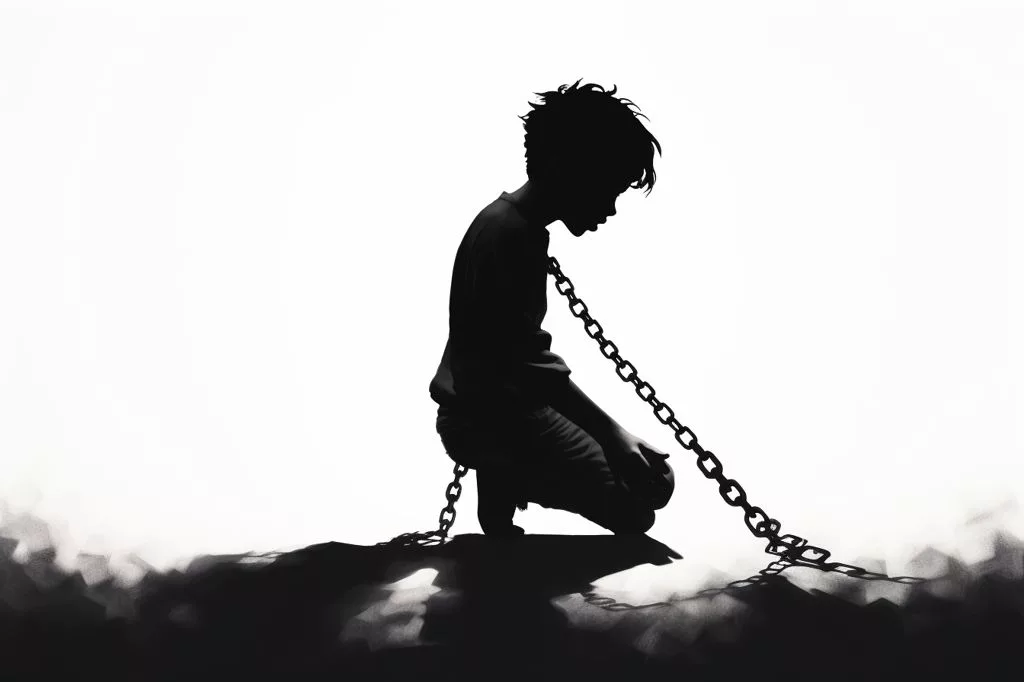HIGHER HEALTH is an organization in South Africa that provides mental health assistance to students, fights against the stigma surrounding mental health issues, and works closely with LGBTQ+ students, gender-based violence survivors, and the general student and staff populations. Mental health problems, especially depression, impact young adults worldwide, and in South Africa, the numbers are deeply concerning. HIGHER HEALTH offers a 24-hour Crisis helpline accessible through a toll-free line, and as we observe World Mental Health Day, it is vital to acknowledge both the severity of mental health problems affecting young adults and the efforts made by organizations like HIGHER HEALTH.
What is HIGHER HEALTH and how is it addressing mental health concerns among South African youth?
HIGHER HEALTH is the health and wellness agency of the Department of Higher Education and Training in South Africa. It provides mental health assistance to students, fights against the stigma surrounding mental health issues, and works closely with LGBTQ+ students, gender-based violence survivors, and the general student and staff populations. It also offers a 24-hour Crisis helpline accessible through a toll-free line and has aided thousands of students through therapies and mental health treatments.
Addressing Mental Health Concerns among South African Youth
As we approach World Mental Health Day on October 10th, 2023, it is essential to acknowledge the importance of mental health as a basic human right. Mental health problems, especially depression, impact young adults worldwide. In South Africa, the numbers are deeply concerning, with nearly half of all fatalities in the 15-24 age group resulting from interpersonal violence, suicides, and accidents.
Research conducted by Stellenbosch University in 2015 found that 12% of students displayed symptoms of moderate to severe depression, while 15% showed signs of moderate to severe anxiety. Additionally, the South African Depression and Anxiety Group (SADAG) reports that one in four South African university students suffers from depression. Suicide ranks among the leading causes of death for young adults, with a substantial number engaging in self-harming behaviors.
Dr. Blade Nzimande, Minister of Higher Education, Science, and Innovation, stresses the importance of addressing the mental health issues faced by South Africa’s youth. In the past two years, HIGHER HEALTH, the health and wellness agency of the Department of Higher Education and Training, has handled 53,619 reported mental health cases among students.
HIGHER HEALTH’s Initiatives and Support Services
HIGHER HEALTH’s Mental Health Prevention initiative has provided mental health assistance to 321,004 students from January 2021 to June 2023. The primary goal of this initiative is to fight against the stigma and taboos surrounding mental health issues. The organization also works closely with LGBTQ+ students, gender-based violence (GBV) survivors, and the general student and staff populations to address their health and psycho-social needs.
Equipped with mobile clinics, nurses, community health and wellness practitioners, psychologists, and peer educators, HIGHER HEALTH is well-prepared to offer support and information to students, helping them develop resilience against mental health challenges. The Psychosocial Support Counselling Unit, staffed by experienced psychologists and counselors, has aided 23,450 students through therapies and mental health treatments from January 2021 to June 2023.
In July 2023, Minister Nzimande introduced the National Civic Education and Health Skills Programme. The program’s co-curriculum, designed to tackle various personal and social challenges experienced by young people in the Post School Education and Training (PSET) sector, includes a Mental Health module. Available in all twelve official languages of South Africa, including sign language, the online program caters to a diverse student population.
Crisis Helpline and Observing World Mental Health Day
To provide additional support to South African students, HIGHER HEALTH offers a 24-hour Crisis helpline accessible through a toll-free line at 0800 006 333. Students can reach the helpline day or night, ensuring they have assistance during difficult times.
As we observe World Mental Health Day, it is vital to acknowledge both the severity of mental health problems affecting young adults and the efforts made by organizations like HIGHER HEALTH. By offering accessible mental health support, these initiatives contribute to students’ well-being and help cultivate resilience in their academic and personal lives.
In summary, mental health is a crucial component of overall well-being, and it is essential that young people receive the help they need to flourish. World Mental Health Day serves as a reminder of the ongoing work required to ensure mental health care is accessible, comprehensive, and free of stigma for everyone.
1. What is HIGHER HEALTH, and what kind of mental health assistance does it provide in South Africa?
HIGHER HEALTH is the health and wellness agency of the Department of Higher Education and Training in South Africa. It provides mental health assistance to students, fights against the stigma surrounding mental health issues, and works closely with LGBTQ+ students, gender-based violence survivors, and the general student and staff populations. It also offers a 24-hour Crisis helpline accessible through a toll-free line and has aided thousands of students through therapies and mental health treatments.
2. Why is mental health a significant concern among South African youth?
Mental health problems, especially depression, impact young adults worldwide. In South Africa, the numbers are deeply concerning, with nearly half of all fatalities in the 15-24 age group resulting from interpersonal violence, suicides, and accidents. Additionally, research conducted by Stellenbosch University in 2015 found that 12% of students displayed symptoms of moderate to severe depression, while 15% showed signs of moderate to severe anxiety. One in four South African university students suffers from depression, according to the South African Depression and Anxiety Group (SADAG).
3. What initiatives and support services does HIGHER HEALTH provide for South African youth?
HIGHER HEALTH’s Mental Health Prevention initiative has provided mental health assistance to 321,004 students from January 2021 to June 2023. The primary goal of this initiative is to fight against the stigma and taboos surrounding mental health issues. The organization also works closely with LGBTQ+ students, gender-based violence (GBV) survivors, and the general student and staff populations to address their health and psycho-social needs. The Psychosocial Support Counselling Unit, staffed by experienced psychologists and counselors, has aided 23,450 students through therapies and mental health treatments from January 2021 to June 2023.
4. What is the National Civic Education and Health Skills Programme, and how does it address mental health concerns?
The National Civic Education and Health Skills Programme is a co-curricular program designed to tackle various personal and social challenges experienced by young people in the Post School Education and Training (PSET) sector. Introduced by Dr. Blade Nzimande, Minister of Higher Education, Science, and Innovation in July 2023, the program includes a Mental Health module. Available in all twelve official languages of South Africa, including sign language, the online program caters to a diverse student population.
5. How does HIGHER HEALTH offer support and information to South African students?
Equipped with mobile clinics, nurses, community health and wellness practitioners, psychologists, and peer educators, HIGHER HEALTH is well-prepared to offer support and information to students, helping them develop resilience against mental health challenges.
6. How has HIGHER HEALTH contributed to addressing mental health concerns among South African youth?
In the past two years, HIGHER HEALTH has handled 53,619 reported mental health cases among students. Its initiatives, support services, and crisis helpline have provided mental health assistance to thousands of students, fighting against the stigma and taboos surrounding mental health issues.
7. What is the 24-hour Crisis helpline offered by HIGHER HEALTH, and how can South African students access it?
HIGHER HEALTH offers a 24-hour Crisis helpline accessible through a toll-free line at 0800 006 333. Students can reach the helpline day or night, ensuring they have assistance during difficult times.
8. What is the significance of World Mental Health Day, and how does it relate to HIGHER HEALTH’s efforts in South Africa?
World Mental Health Day serves as a reminder of the ongoing work required to ensure mental health care is accessible, comprehensive, and free of stigma for everyone. As we observe World Mental Health Day, it is vital to acknowledge both the severity of mental health problems affecting young adults and the efforts made by organizations like HIGHER HEALTH in providing accessible mental health support to students.








